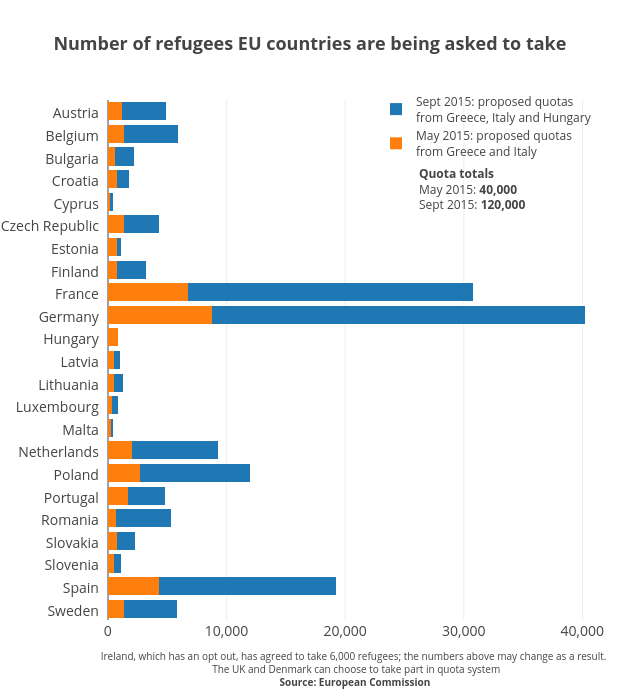The European Union is braced for a backlash from a group of central and eastern European countries over its decision to back a relocation scheme for refugees yesterday, amid continuing divisions among member states about how to respond to the refugee crisis.
In a highly unusual move EU justice ministers yesterday pushed through an agreement on a quota system for refugees by qualified majority voting, over-riding the concerns of four countries - Hungary, the Czech Republic, Slovakia and Romania. Finland abstained from the vote.
Within minutes of the meeting finishing, Slovakian prime minister Robert Fico told parliamentarians in Bratislava he would reject quotas.
“As long as I am prime minister, mandatory quotas will not be implemented on Slovak territory,” he said.
‘Common sense lost’
The Czech Republic also indicated its opposition to the proposal, with Czech interior minister
Milan Chovanec
tweeting: “We will soon realise that the emperor has no clothes. Common sense lost today.”
EU leaders, including Taoiseach Enda Kenny, travel to Brussels today for a crisis summit on the migration crisis, following yesterday's agreement on the contentious relocation proposal.
While technically the scheme will be voluntary, the controversial quota system proposed by the European Commission will still stand.
Of the 120,000 figure proposed by the commission, 15,500 refugees will be reassigned from Italy to other member states, and 50,400 from Greece.
The remaining 54,000 refugees who had been expected to be taken from Hungary will now be relocated from other member states such as Croatia and Slovenia as well as Italy and Greece.
Speaking in Brussels, Minister for Justice Frances Fitzgerald said that while it was unfortunate the agreement had not been reached by consensus the outcome of the meeting demonstrated that the EU retained the capacity to act.
Though Ireland technically did not have a vote at yesterday's meeting, it will opt in to the relocation scheme, with the requisite Dáil and Seanad vote expected next week.
European Commission vice- president Frans Timmermans welcomed the outcome: "We can now show to an increasingly sceptical civil society that we are capable of taking decisions."
He said further moves in the field of foreign policy, defence and border security were needed “before we really get this issue under control.”
The OECD yesterday questioned the EU’s strategy on the migration crisis, predicting that the EU will see a million refugees arriving every year for most of this decade.
While leaders will consider yesterday's relocation proposal, the focus of today's meeting will also be on the long-term strategies to deal with the migration crisis, including a commission proposal to increase funding for Turkey to help it deal with the influx of refugees.












